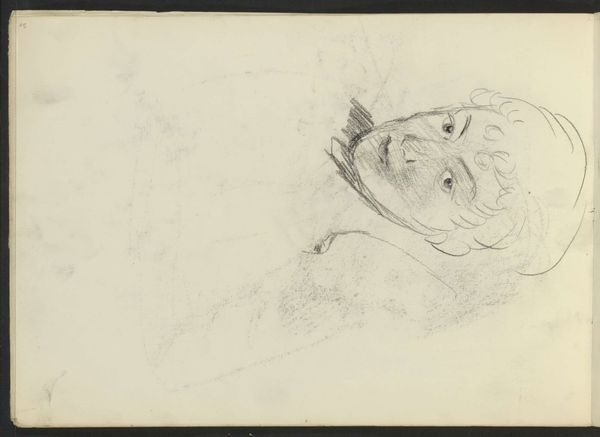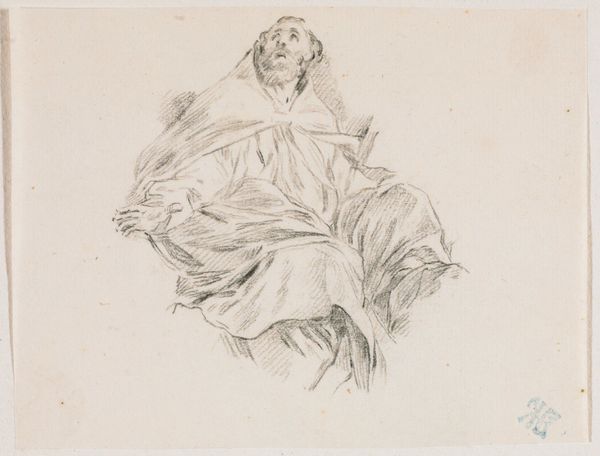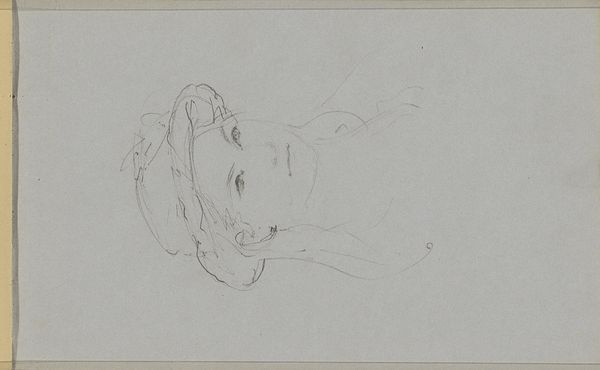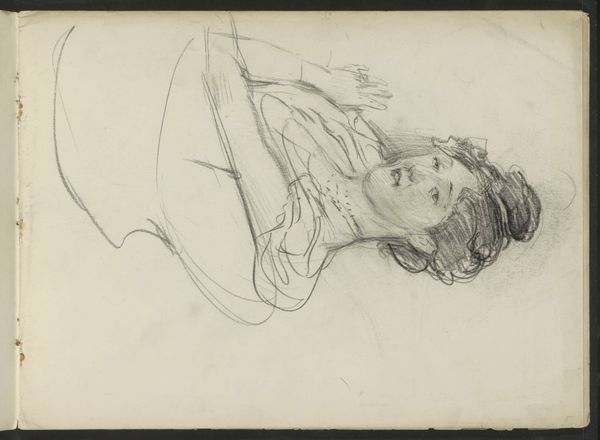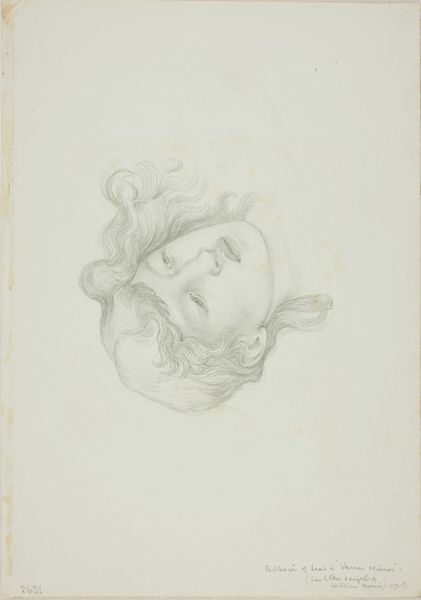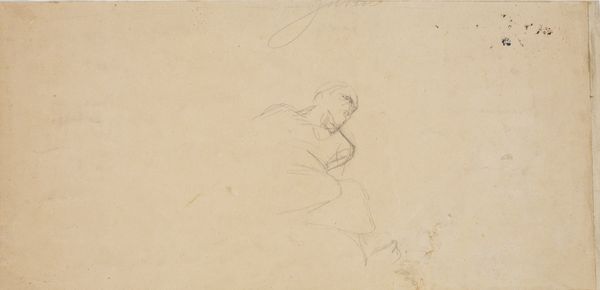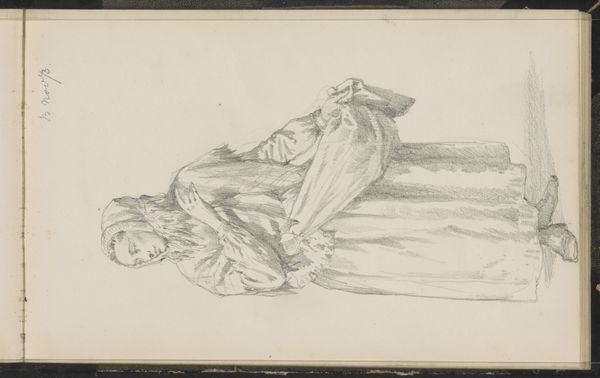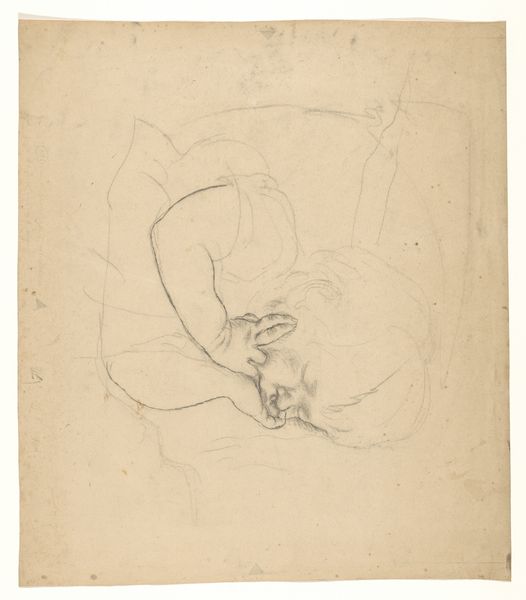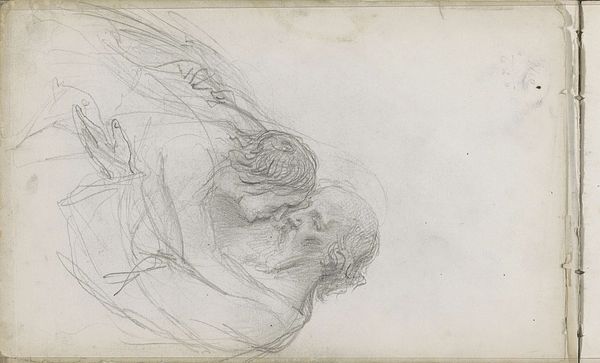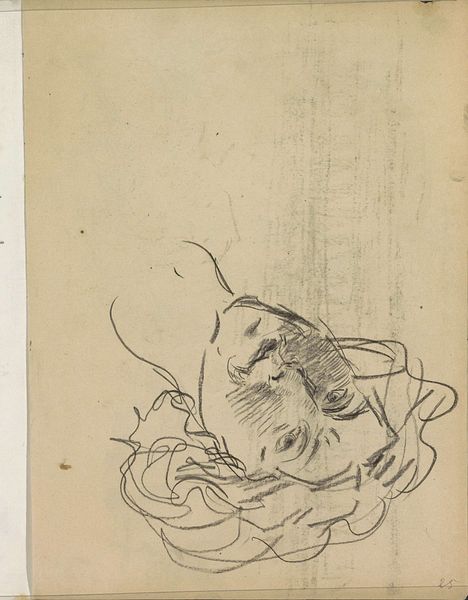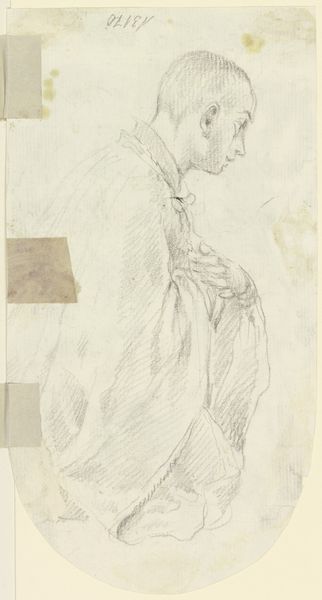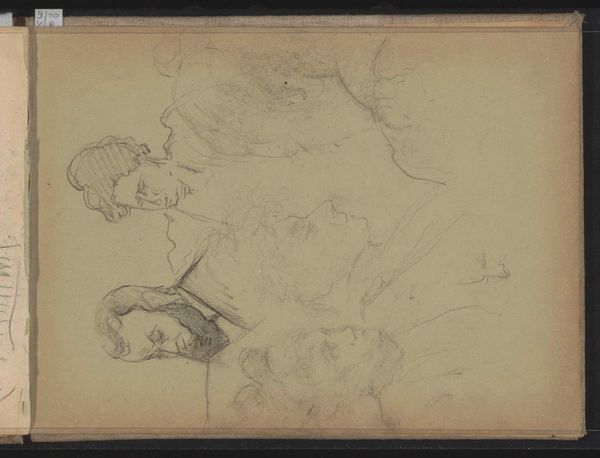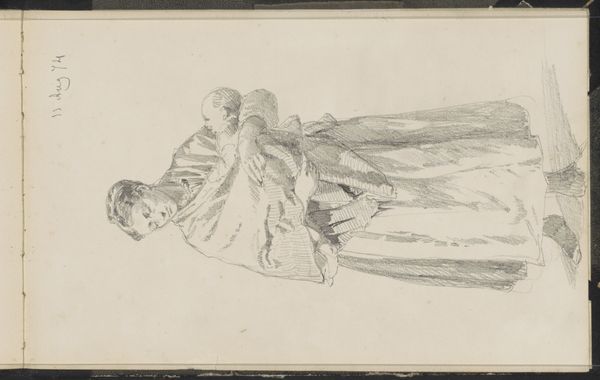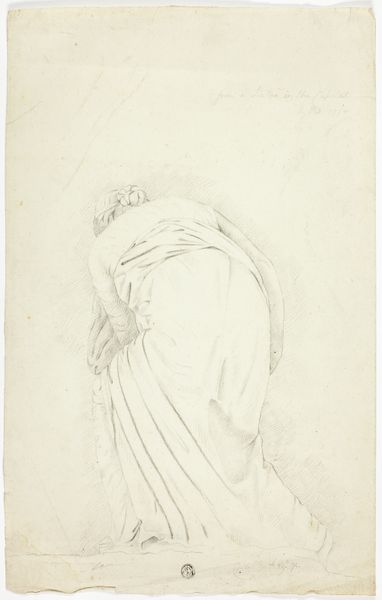
Zelfportret met schildersbenodigdheden en portret van jonkheer Joan Melchior Kemper 1828
0:00
0:00
drawing, pencil
#
portrait
#
pencil drawn
#
drawing
#
self-portrait
#
pencil drawing
#
romanticism
#
pencil
#
portrait drawing
Copyright: Rijks Museum: Open Domain
Editor: So, this is “Self-Portrait with Painting Materials and Portrait of Jonkheer Joan Melchior Kemper” by Elisabeth Kemper, made in 1828. It's a pencil drawing, and what strikes me is the… vulnerability in her gaze, the softness of the lines. How do you interpret this work, seeing as it's both a self-portrait and includes a portrait of someone else? Curator: It's compelling how Kemper situates herself within this drawing. Notice how the gaze avoids direct engagement, suggesting perhaps the constraints placed on women artists in the 19th century. The inclusion of Joan Melchior Kemper might signal her connection to a specific intellectual or social circle. Do you think this impacts our interpretation? Editor: Absolutely. Knowing it’s 1828, the Romantic era, and considering her social standing... the limited space afforded to female artists becomes clear. The indirect gaze could definitely be read as a quiet act of resistance. Does the ‘unfinished’ feel contribute to that, too? Curator: That’s a brilliant observation. The ‘unfinished’ quality can be interpreted as a conscious decision. Is she refusing to be entirely defined or contained by the dominant male gaze and the art world of her time? Think of feminist art theories, questioning patriarchal structures... Editor: Wow, I hadn't considered it as a form of resistance like that, but it makes so much sense now. It's more than just a portrait; it's a statement, however subtle. Curator: Precisely. It prompts us to rethink how women artists navigated, and challenged, societal expectations through their work. Always consider context: who painted, when, and under what constraints? Editor: This piece certainly highlights the power of art as social commentary. Thanks, that was incredibly insightful.
Comments
No comments
Be the first to comment and join the conversation on the ultimate creative platform.
